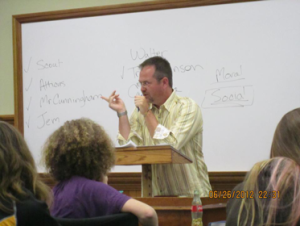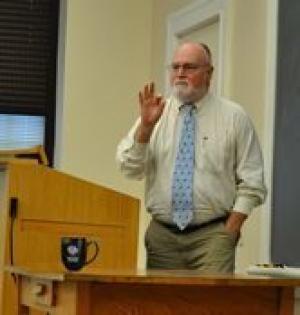Resources

Lea F. Schweitz, Associate Professor of Systematic Theology/Religion and Science, Lutheran School of Theology at Chicago As a teacher, whenever I utter the words, “Okay class, please get into your small working groups,” I remember the sense of dread that...

Greg Carey, Professor of New Testament at Lancaster Theological Seminary We all know that our students’ social and religious contexts shape the way they understand the Bible – in theory, at least. But how do we bring that knowledge into...

Wil Gafney, Associate Professor of Hebrew and Old Testament, Lutheran Theological Seminary at Philadelphia (At Brite Divinity School as of 9/2014) As the saying goes, “sometimes the old ways are best.” (Eve Moneypenny and James Bond in Skyfall, 2012) Hevruta...

Lynn Neal is Associate Professor of Religion at Wake Forest University I was sitting around the seminar table with eighteen students in a course on religion and popular culture. To get the discussion started, I asked them about the results...

Monica A. Coleman is Associate Professor of Constructive Theology and African American Religions at Claremont School of Theology. Pedagogical Confession: I learn from lectures. I’m one of those people for whom the traditional academy was made. I listen to lectures...

When I started teaching I relied, like many others, on the examples of my own teachers. When I was an undergraduate, the teachers who moved me most were never straight lecturers. So, I tried to adapt their styles. The more...

Antonios Finitsis, Associate Professor of Hebrew Bible, Pacific Lutheran University Recent literature on the educational profile of the iGeneration emphasizes their love for collaboration.[1] One could further argue that group projects make great assignments beyond the well-documented learning proclivities of...